
The Greens was a centre-left to left-wing green-ecologist political party in France. The Greens had been in existence since 1984, but their spiritual roots could be traced as far back as René Dumont's candidacy for the presidency in 1974. On 13 November 2010, The Greens merged with Europe Ecology to become Europe Ecology – The Greens.
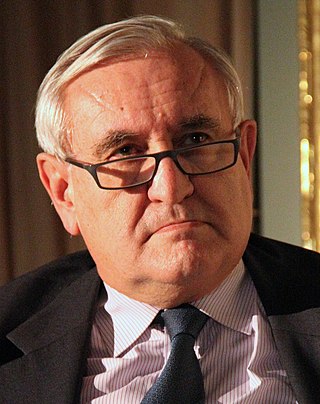
Jean-Pierre Raffarin is a French politician who served as Prime Minister of France from 6 May 2002 to 31 May 2005.
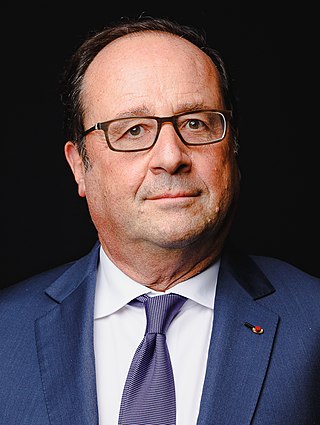
Regional elections in were held in France on 21 and 28 March 2004. At stake were the presidencies of each of France's 26 regions which, although they do not have legislative powers, manage sizeable budgets. The results were a triumph for the parties of the left, led by the French Socialist Party (PS) in alliance with minor parties, including the French Communist Party (PCF), the Left Radical Party (PRG) and The Greens. The left has usually fared moderately well in regional elections, but this was their best result since the regional system was introduced.

The Radical Party of the Left is a social-liberal political party in France. A party in the Radical tradition, since 1972 the PRG has been a close ally of the major party of the centre-left in France, the Socialist Party. After the 2017 presidential and legislative elections, negotiations to merge the PRG with the Radical Party began and the refounding congress to reunite the parties into the Radical Movement was held on 9 and 10 December 2017. However, a faction of ex-PRG members, including its last president Sylvia Pinel, split from the Radical Movement in February 2019 due to its expected alliance with La République En Marche in the European elections and resurrected the PRG.

The Corsican Assembly or Assembly of Corsica is the unicameral legislative body of the territorial collectivity of Corsica. It has its seat at the Grand Hôtel d'Ajaccio et Continental, in the Corsican capital of Ajaccio. After the 2017 territorial elections, the assembly was expanded from 51 to 63 seats, with the executive council expanding from 9 to 11 members.
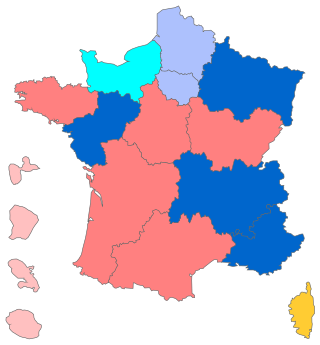
A regional council is the elected assembly of a region of France.

Legislative elections were held in France on 10 June and 17 June 2007 to elect the 13th National Assembly of the Fifth Republic, a few weeks after the presidential election run-off on 6 May. 7,639 candidates stood for 577 seats, including France's overseas possessions. Early first-round results projected a large majority for President Nicolas Sarkozy's Union for a Popular Movement (UMP) and its allies; however, second-round results showed a closer race and a stronger left. Nevertheless, the right retained its majority from 2002 despite losing some 40 seats to the Socialists.

The French municipal elections of 2008 were held on 9 and 16 March to elect the municipal councils of France's 36,782 communes. The first task of each newly constituted municipal council was to elect a mayor.

Regional elections were held in France on 15 March 1998. At stake were the presidencies of each of France's 26 regions, which, though they don't have legislative autonomy, manage sizeable budgets.
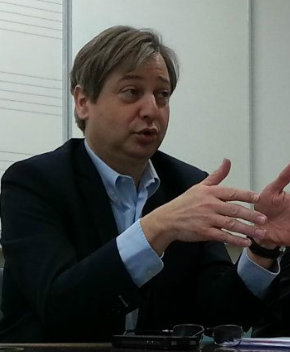
François Grosdidier is a French politician. He served as mayor of Metz since 2020. He also represented the Moselle department in the Senate and is a member of The Republicans.
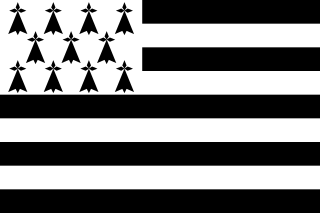
The politics of Brittany, France takes place in a framework of a presidential representative democracy, whereby the President of Regional Council is the head of government, and of a pluriform multi-party system. Legislative power is vested in the regional council.

The politics of Alsace, France, takes place in a framework of a presidential representative democracy, whereby the President of the Regional Council is the head of government, and of a pluriform multi-party system. Legislative power is vested in the regional council.

The politics of Rhône-Alpes, France takes place in a framework of a presidential representative democracy, whereby the President of Regional Council is the head of government, and of a pluriform multi-party system. Legislative power is vested in the regional council.

The Politics of Poitou-Charentes, France takes place in a framework of a presidential representative democracy, whereby the President of Regional Council is the head of government, and of a pluriform multi-party system. Legislative power is vested in the regional council.
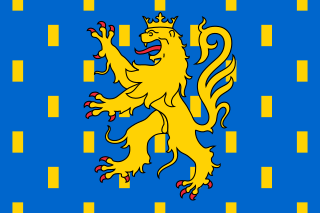
The politics of Franche-Comté, France takes place in a framework of a presidential representative democracy, whereby the President of Regional Council is the head of government, and of a pluriform multi-party system. Legislative power is vested in the regional council.

Legislative elections were held in France on 10 and 17 June 2012 to select the members of the 14th National Assembly of the Fifth Republic, a little over a month after the presidential election run-off held on 6 May.

The Socialist Party is a centre-left to left-wing political party in France. It holds social democratic and pro-European views. The PS was for decades the largest party of the "French Left" and used to be one of the two major political parties under the Fifth Republic, along with the Union for a Popular Movement. It replaced the earlier French Section of the Workers' International (SFIO) in 1969 and is currently led by First Secretary Olivier Faure. The PS is a member of the Party of European Socialists, Progressive Alliance and Socialist International.
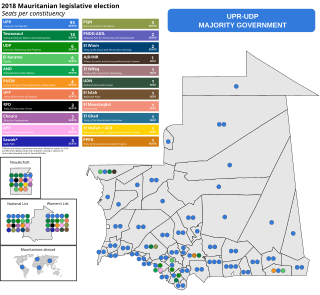
Parliamentary elections were held in Mauritania in September 2018; the first round took place on 1 September, with a second round held on 15 September. At the national level, elections were held in 157 constituencies, each electing one member to the National Assembly. Elections were also held in 13 regional councils and 219 municipalities.
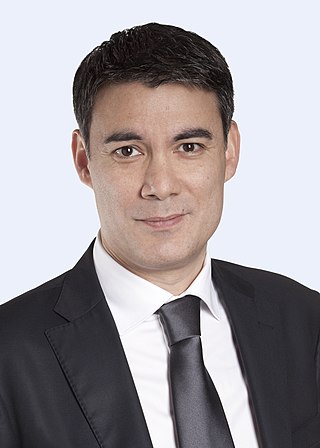
Regional elections were held in France on 20 June and 27 June 2021. At stake were the regional councils in metropolitan and overseas France including the Corsican Assembly, Assembly of French Guiana and Assembly of Martinique, all for a six-year term. The Departmental Council of Mayotte, which also exercises the powers of a region, also participated in this election, because the departmental elections were held at the same time. Eighteen regional presidencies were at stake, with thirteen in mainland France and Corsica, as well as five overseas. Though they do not have legislative autonomy, these territorial collectivities manage sizable budgets. Moreover, regional elections are often perceived as a mid-term opinion poll. Due to the COVID-19 pandemic, the regional and departmental elections were postponed, first to 13 and 20 June 2021 and then to 20 and 27 June 2021.

The politics of Île-de-France, France takes place in a framework of a presidential representative democracy, whereby the President of Regional Council is the head of government, and of a pluriform multi-party system. Legislative power is vested in the regional council.




















